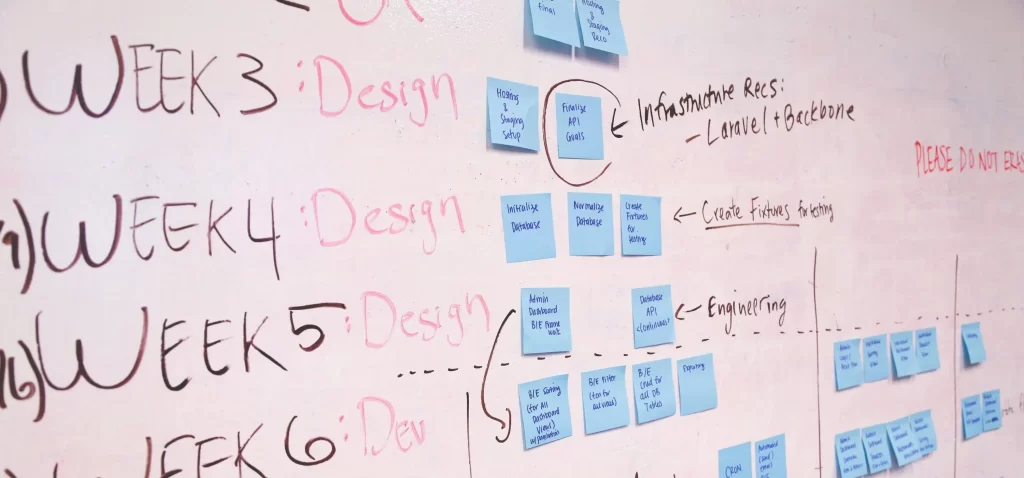10 Essential Tips for Successful Project Management
Effective project management is the key to delivering tasks on time, within budget, and with exceptional results. Whether you are overseeing a small team or managing a large-scale project, having the right strategies in place can significantly enhance efficiency. In this article, we will explore 10 Essential Tips for Successful Project Management to help you optimize your workflow, improve team collaboration, and navigate challenges with ease. By following these expert insights, you can ensure project success and avoid common pitfalls.
Define Clear Objectives and Goals
Every successful project begins with a well-defined objective. Establishing SMART goals—specific, measurable, achievable, relevant, and time-bound—provides a clear roadmap for project execution. When objectives are precise, team members can align their efforts to achieve them efficiently. Defining project goals at the outset also helps prevent scope creep, ensuring that the project stays on track.
Develop a Detailed Plan
A well-structured project plan serves as the foundation for successful execution. Outline the scope, timeline, budget, and required resources to set expectations from the start. Incorporate key milestones and deliverables to track progress effectively. Using project management tools such as Trello or Asana can enhance organization and streamline workflows.
Assemble the Right Team
The success of any project heavily depends on having a skilled and motivated team. Choose team members with relevant expertise and clearly define their roles and responsibilities. Encouraging open communication and collaboration fosters a productive work environment and ensures that everyone is aligned with the project’s objectives.
Communicate Effectively
Clear and consistent communication is a cornerstone of successful project management. Regular updates, meetings, and feedback loops help keep all stakeholders informed about progress, changes, and potential challenges. Utilizing tools like Slack, Microsoft Teams, or Zoom facilitates seamless communication and enhances team coordination.
Monitor Progress Continuously
Tracking progress throughout the project lifecycle is essential to ensuring timely completion. Utilize performance metrics and project tracking software to monitor tasks, milestones, and deadlines. This proactive approach allows for quick identification and resolution of issues before they escalate. Platforms like Jira and Monday.com provide real-time insights into project health.
Manage Risks Proactively
Identifying and mitigating risks early on can save time and resources. Conduct risk assessments at the start of the project and develop contingency plans for potential setbacks. Regularly reassessing risks throughout the project lifecycle ensures that any emerging threats are addressed promptly, minimizing disruptions.
Ensure Quality Control
Maintaining high-quality standards is crucial for project success. Implementing quality assurance processes, such as regular testing and reviews, helps detect and resolve issues early. Setting clear quality benchmarks ensures that deliverables meet expectations and enhance client satisfaction.
Control the Scope
Scope creep can derail a project and lead to cost overruns. To avoid this, define project boundaries clearly and obtain stakeholder approval before implementing any changes. Maintaining a structured change management process ensures that modifications are evaluated carefully and do not negatively impact the project timeline or budget.
Foster a Positive Team Environment
A motivated and engaged team is more likely to deliver successful results. Recognizing achievements, encouraging professional development, and addressing conflicts proactively contribute to a positive workplace culture. When team members feel valued, they are more productive and committed to achieving project goals.
Conduct Post-Project Evaluations
Once the project is completed, conducting a thorough post-project evaluation is essential for continuous improvement. Gather feedback from team members and stakeholders to assess what worked well and identify areas for enhancement. Documenting key learnings helps refine future project management strategies and ensures ongoing success.
Conclusion

By continuously evaluating and refining your approach, you can master project management and achieve outstanding results.
Implementing these 10 Essential Tips for Successful Project Management can significantly improve project outcomes. From setting clear goals and developing a solid plan to maintaining quality and fostering a collaborative environment, these strategies pave the way for success. Utilizing project management tools and proactive risk management further enhances efficiency and minimizes obstacles. By continuously evaluating and refining your approach, you can master project management and achieve outstanding results.
For more insights on project management best practices, explore our comprehensive training programs to elevate your skills and stay ahead in the industry.



